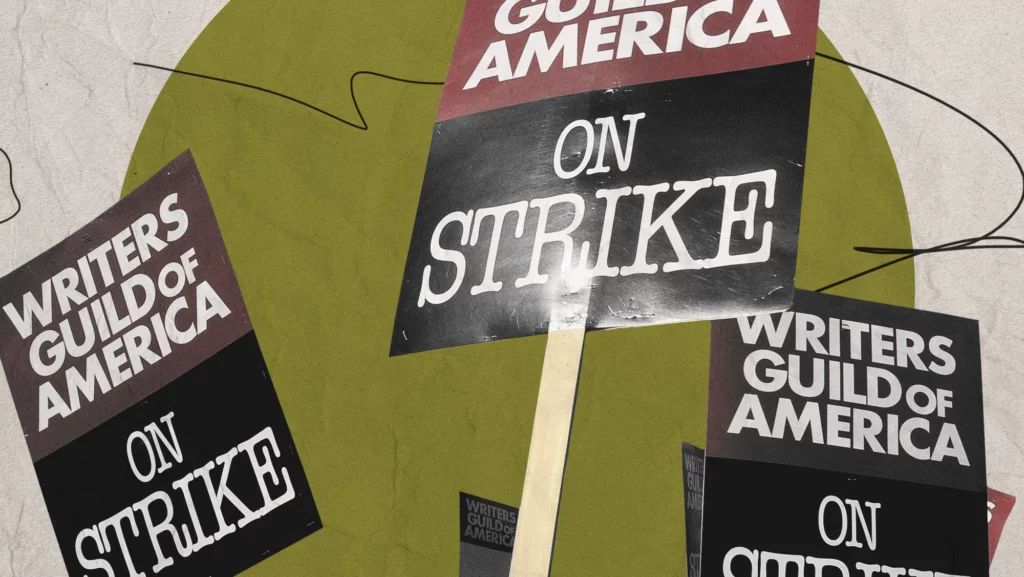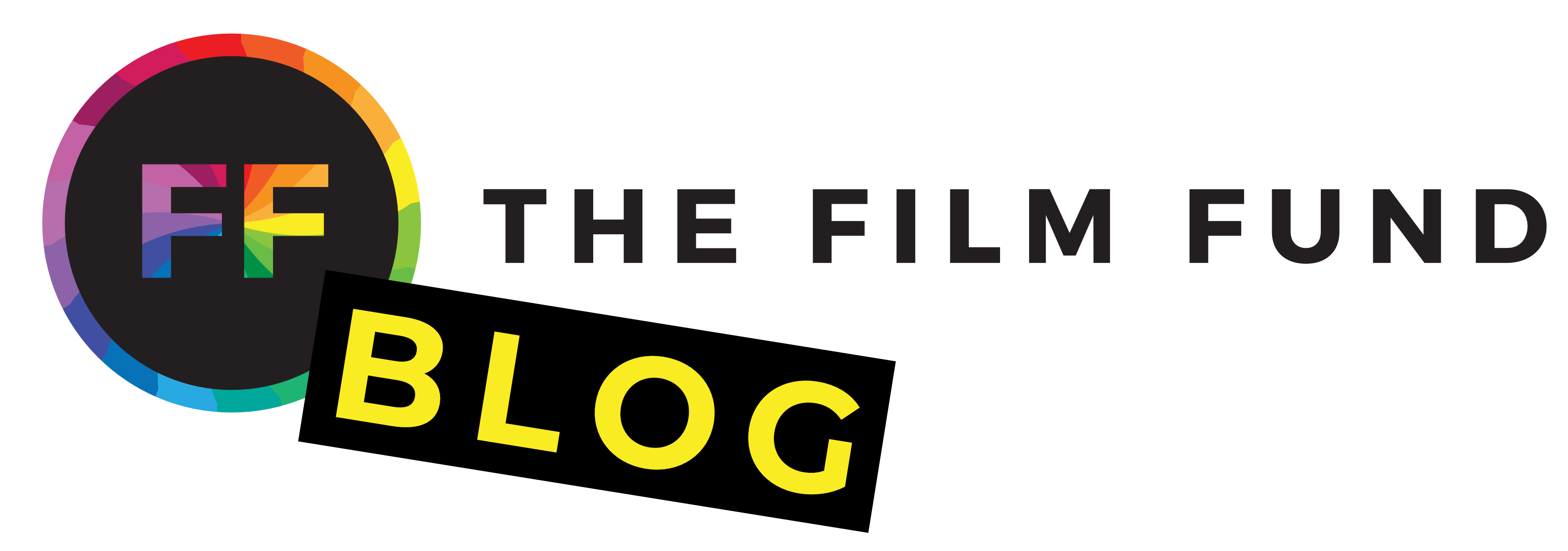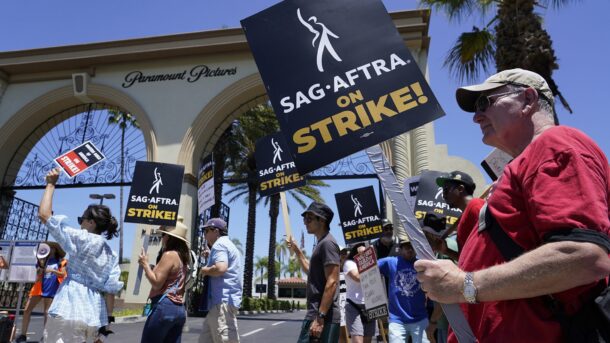If you’re an aspiring filmmaker or a passionate cinephile, you are almost certainly already familiar with the buzz surrounding the film industry unions on strike. The ongoing labor disputes stemming from the two unions, the Screen Actors Guild-American Federation of Television and Radio Artists (SAG-AFTRA) and the Writers Guild of America (WGA), have taken center stage, triggering discussions and debates within the filmmaking community. These discussions are important, but what do these strikes mean for independent filmmakers?
In this post, we’ll uncover how these strikes are affecting those creating independent short films. Indie films have long been a breeding ground for innovation, allowing emerging talents to shine and established creators to experiment beyond mainstream conventions. But how will these strikes from the film industry unions influence this nurturing ground of creativity? Join us as we embark on a journey to understand the current state of the film industry, analyzing the impact of the SAG-AFTRA and WGA strikes on independent short films.
Why Are SAG-AFTRA and WGA Striking?
Before we get into the nitty-gritty, let’s understand why both of these unions are striking. There are many reasons but the two biggest are the threat of artificial intelligence and low wages.
Artificial Intelligence
Both WGA and SAG-AFTRA believe that the use of artificial intelligence is diminishing, devaluing, and threatening the security of their work and demand to see it regulated. SAG-AFTRA said, in regards to AI, that the studios “want to be able to scan a background performer’s image, pay them for a half a day’s labor, and then use an individual’s likeness for any purpose forever without their consent.” Likewise, the writers do not want to see their jobs replaced by AI either.
Wages
WGA and SAG-AFTRA also believe that, with rising inflation looming over them, their wages are not appropriate for the work and success they produce. In reference to insufficient pay, WGA stated “[t]he companies have leveraged the streaming transition to underpay writers, creating more precarious, lower-paid models for writers’ work.” The actors have lodged similar complaints, insisting that the wages from the previous contracts need to be bumped up.
This is important and all, but do these demands mean that independent filmmakers will be struggling to find writers and actors?
Do the Strikes Affect My Low-Budget Independent Film?
When it comes to figuring out if an independent film’s production will be affected, it mostly comes down to the budget. However, if your short film production is already working within a low budget, you’re in luck! You will most likely not be affected by the strikes by the film industry unions. Let’s cover the details.

Micro-Budget & Short Projects
SAG-AFTRA makes an exception for projects that fall under the “micro-budget” and “short project” categories. A micro-budget production has a budget of $20,000 or less. There are several stipulations to this definition, including, but not limited to animation, any production that involves dangerous stunts, or anything involving nudity. A short project can have a higher budget of up to $50,000 but can only result in a maximum run time of 40 minutes. We suspect that most independent productions will fall under either of these categories and can rest easy.
Student Agreements
Students need not worry, as the union also has made an exception for their work as well. The SAG-AFTRA student agreement “applies to student films that satisfy course requirements at an accredited educational institution shooting entirely in the United States with a budget of less than $35,000 and a run time of less than 35 minutes.” It’s a bit of a wordy definition but, generally speaking, any student working with actors in the union should be unaffected.
Do the Strikes Affect My High-Budget Independent Film?
What happens if your film production is higher budget? Do these strikes from film industry unions mean that you’re out of luck? Not quite! Exceptions are being made for many filmmakers.

Interim Agreement
SAG-AFTRA knows that their strike would affect plenty of well-meaning independent filmmakers. As a result, they have offered “interim agreements” to those looking to work with union actors while still running high-budget productions. Think of these as waivers. Your production is eligible for this waiver as long as your production is truly independent of the Alliance of Motion Picture and Television Producers (AMPTP).
Who is AMPTP?
AMPTP is the organization that represents the big movie studios. They are the collective voice of companies like Walt Disney Studios, Sony Pictures, and Warner Brothers. Given that these are some of the largest studios in the industry, it’s safe to expect that most independent filmmakers won’t be working with any AMPTP studios. It should be noted that they have already received “hundreds” of applicants, and SAG-AFTRA is working to make sure each and every one of these applicants is not connected to AMPTP in any way. So nobody can say for sure how long it would take to have your production approved by SAG-AFTRA.
Finding Non-Union Workers
Perhaps you’re working with a larger budget and your production has some AMPTP fingerprints on it. Or maybe for your own personal reasons, you don’t want to work with the unions while they’re on strike. One option would be to work with writers and actors who aren’t part of the film industry unions. There are plenty of great actors and writers out there looking for work despite the ongoing strikes.
Local Acting Schools and Writing Workshops
Consider reaching out to local acting schools and writing workshops to find emerging talents. Aspiring actors and writers often seek opportunities to gain experience and build their portfolios, making them open to collaboration with independent filmmakers. Hosting auditions or guest speaking at these institutions can be a fantastic way to discover fresh faces and voices.

Social Media & Online Communities
Never underestimate the power of social media in your quest for non-union writers and actors. Platforms like Instagram, Twitter, and Facebook are teeming with aspiring and established creatives eager to showcase their talents. Join filmmaking groups and online communities to connect with writers and actors who resonate with your project’s vision.
Online Portfolio Websites
Writers and actors often maintain online portfolios showcasing their past work and accomplishments. Websites like Behance and personal blogs offer a glimpse into the creative prowess of potential collaborators. Scouring these platforms can lead you to talented individuals who align with your project’s vision.
Conclusion
The strikes from the film industry unions are undoubtedly reshaping the landscape of the film industry, leaving a significant impact on independent short films. For independent filmmakers, navigating these uncertain times may seem daunting, but it’s important to remember that challenges often lead to innovation. As these strikes unfold, be aware of the negotiations, resolutions, and ongoing discussions between film industry unions and production companies, as they will provide valuable insights into the evolving dynamics of the entertainment world.
The Film Fund believes that great work can still be produced with the new guidelines of film industry unions in place, and we will continue to accept entries to our funding opportunities. Head to our sign-up page to enter our funding contests where, by submitting just a single sentence, you can win up to $10,000 in funding for your short film. No need to submit a completed script! We’re looking to bring both documentaries and narratives to life, so take a chance and sign up for our funding contests.
If you’d like to learn more about the strikes, here are some great resources.
- WGA Strike Website
- The official site for all news, updates, and information regarding the WGA strike, their demands, and more.
- SAG-AFTRA Strike Website
- The official site for the SAG-AFTRA strike, featuring announcements, videos, the union’s demands, and other information.
- AMPTP Press Releases
- The page on the official AMPTP website that contains any statements AMPTP has publicly released regarding their stance on the unions’ claims and demands.




